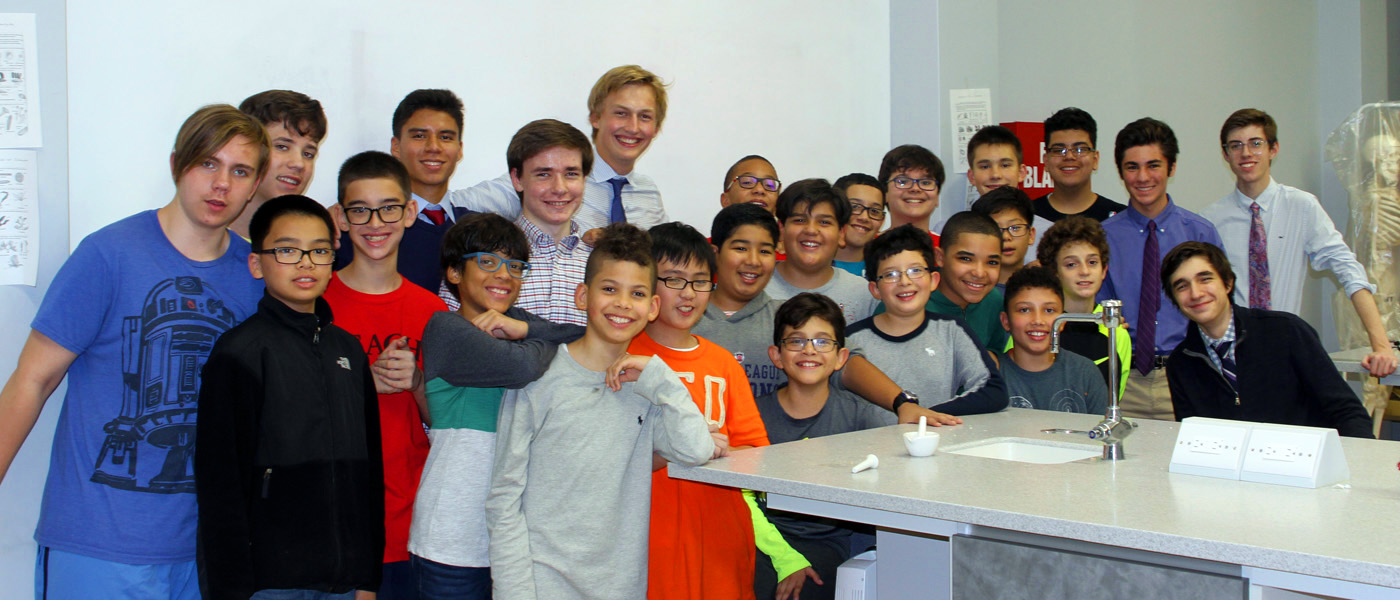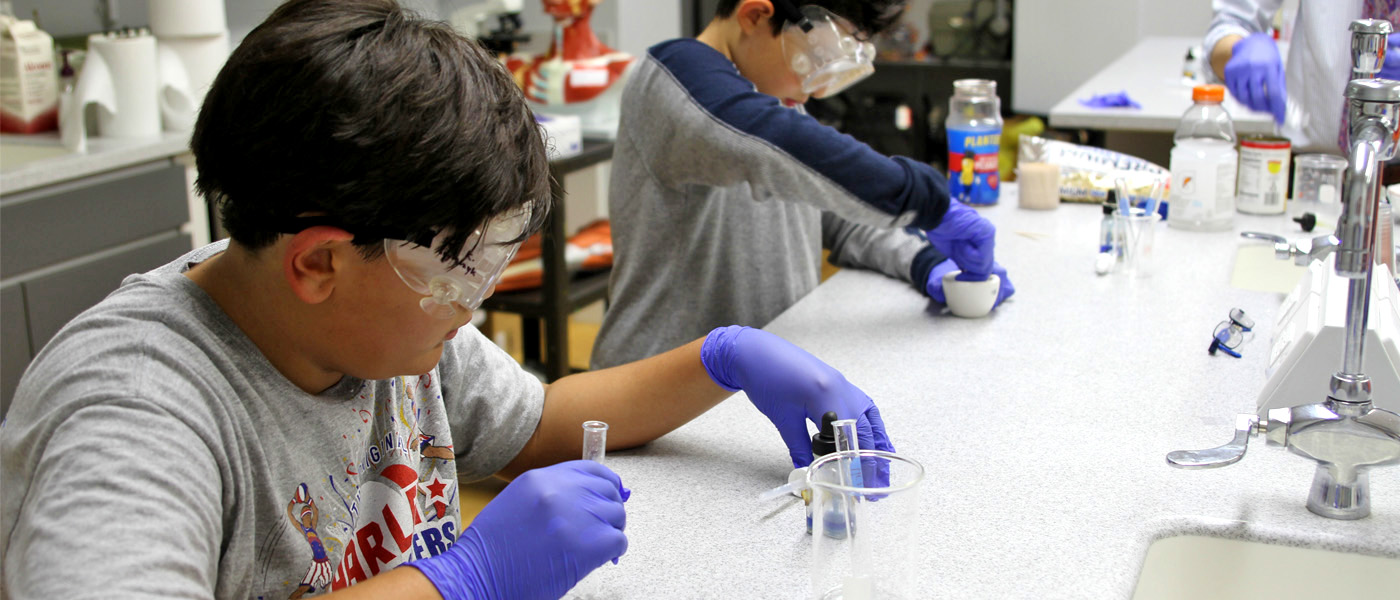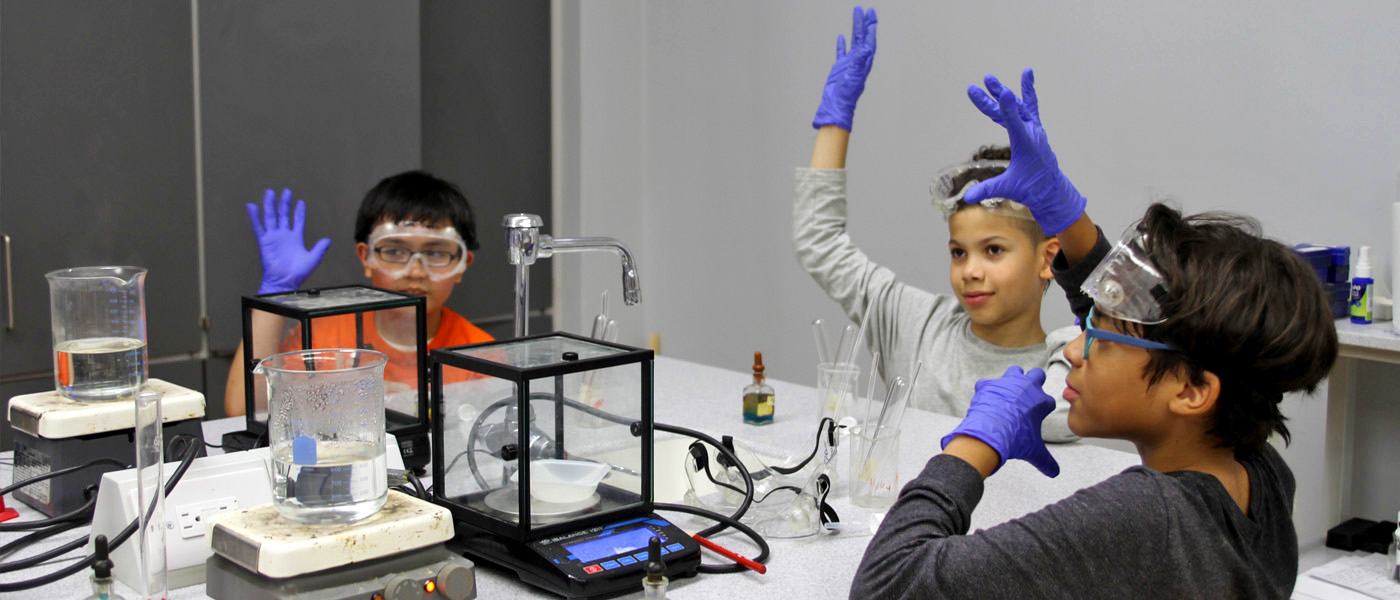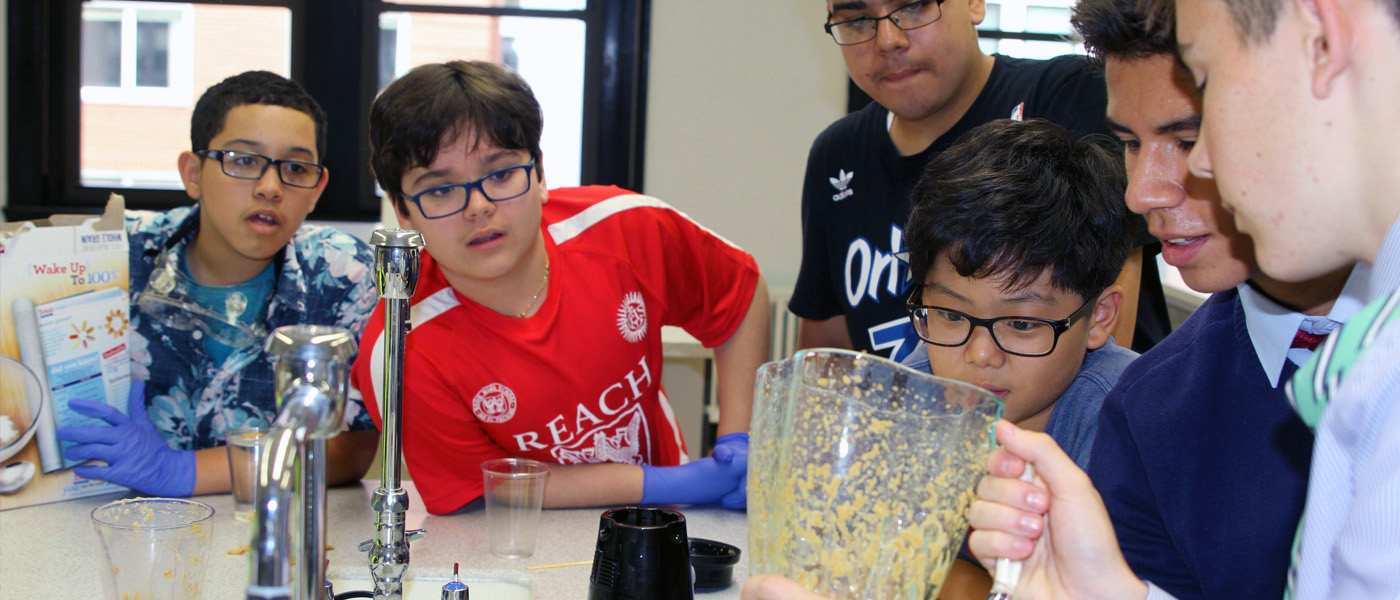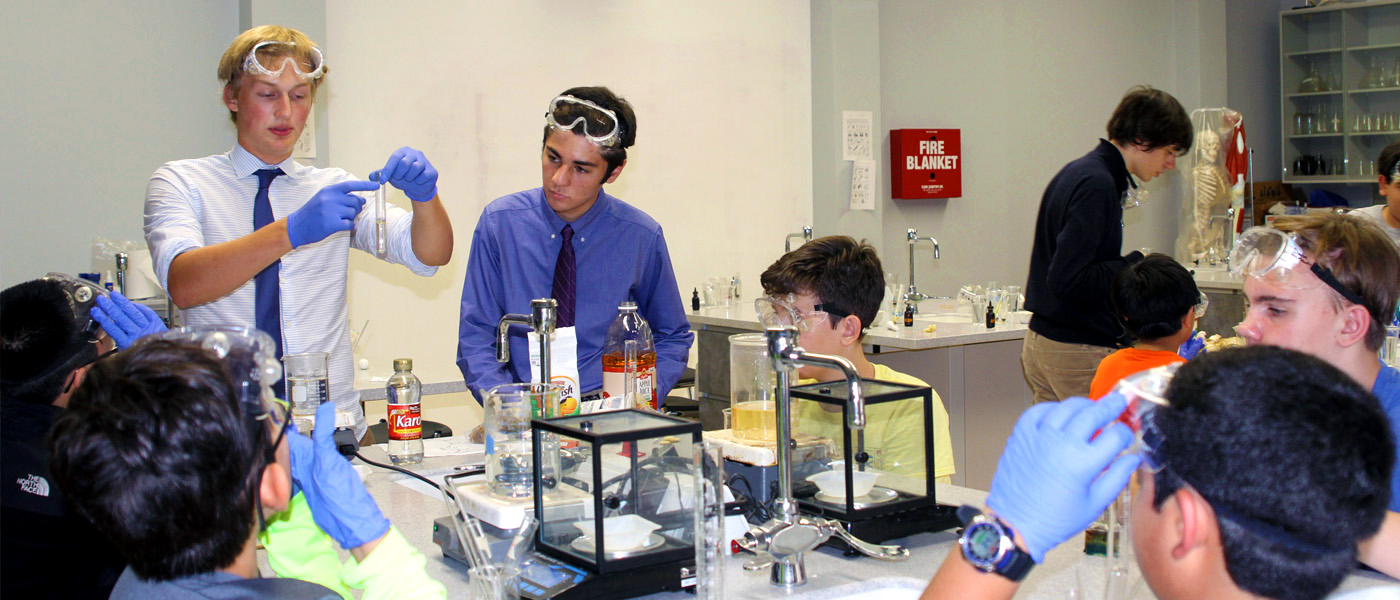An Experiment in Service
REACH students come to Regis High School for 20 Saturdays during the school year, a significant commitment to their own academic development in addition to the six-week summer camp each year. Students begin the day with chapel, proceed to accelerated English Language Arts or math classes, and also take an elective in visual arts, computer programming, robotics, or public speaking.
While this program is quite robust and rigorous, one subject had been lacking: lab science. That is, until Regis Senior Robert Koniuta dreamed up a way to give back to the REACH Program and share his love of science experiments with 6th and 7th grade REACH students.
Koniuta, himself a budding scientist, cites an early exposure to science labs for sparking his own interest. A little over a year ago, he found himself considering whether other students might be missing out on those formative experiences. Though not himself a REACH mentor, Koniuta had always felt that he wanted to contribute in some meaningful way, and considered the possibility “that these bright kids did not have satisfying experiences in science.”
Knowing the newly-renovated Regis science labs to be well equipped for a range of experiments, Koniuta composed and pitched a proposal to the directors of the REACH Program: after the regular Saturday lessons, he could guide interested students through a lab and give them an opportunity for a hands-on, active science experience. For students who might never “have held a test tube, worn lab goggles, [or] measured out reagents,” he thought this opportunity would be exciting and inspirational.
After an announcement was made, REACH teachers expected at most a dozen students to register for extra coursework on top of their Saturday classes.
The first “Science Saturday,” as it is now called, instead saw almost 40 students in attendance. Koniuta describes the atmosphere as a feeling of “genuine excitement, sparks of curiosity along with very insightful questions.” One kid, he remembers, exclaimed how “wearing [the lab] gloves make [him] feel like a real doctor.”
Koniuta led an experiment that allowed students to extract DNA from strawberries—“a relatively simple experiment with a satisfying WOW factor,” as he explains it. He approached Regis biology teacher Dr. William Carew for permission to use school equipment. “An introduction to DNA technology,” Dr. Carew says, “is such a gift for kids that age.”
That excitement has not weakened over time. “There was a great hunger, not just among the kids, but also among the families, to get into the labs and to do some science,” says Mr. Doug Eickman ’05, REACH’s Academic Dean for Mathematics.
After that first lab, the program was formalized under the title of the REACH Science Program and has received a budget along with the help of more Regis students. Last trimester’s Science Saturdays all related to the “Science of Food,” a theme that included various experiments on food ingredients as well as lessons on smart food choices.
Koniuta, who continues to lead the student side of the program, has high hopes for its future. Beyond expanding the curriculum to cater to different grade levels, his goals include the inauguration of a REACH Science Fair to promote scientific initiative and adventure among REACH students.
Wherever the program’s future leads it, REACH Science has already made an impact on many potential young scientists. Eickman thinks there is a wider lesson in its success: “Rob [Koniuta] has shown us that a lot can be accomplished with a simple format and the wonderful passion for learning, service, and selflessness that exists in the Regis student body.”
Read more Regis news
